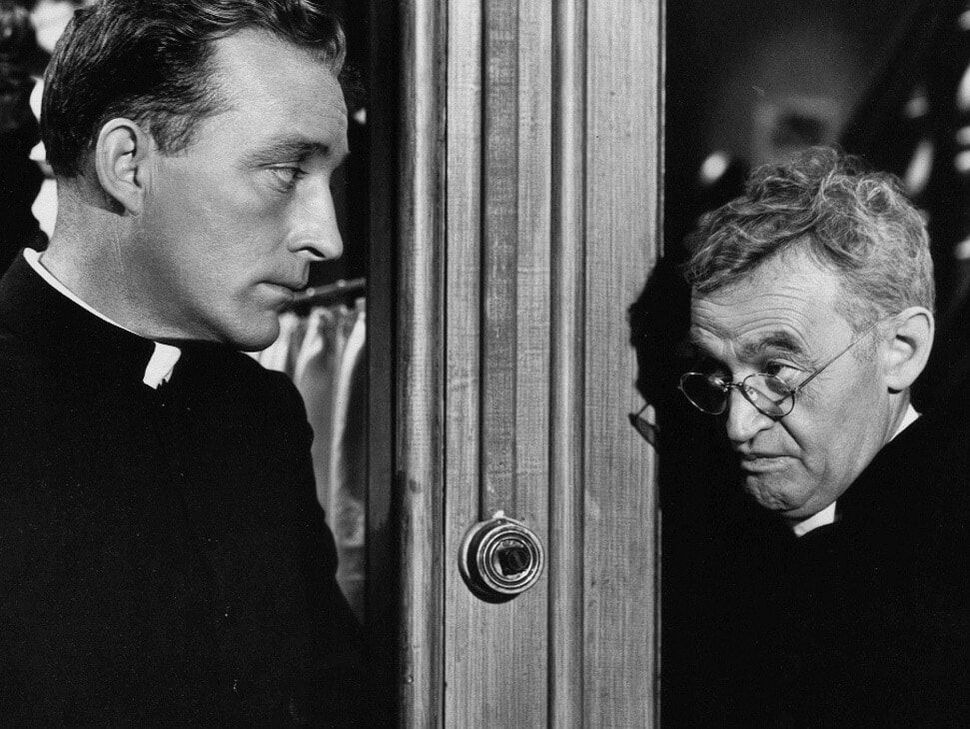|
A progressive young priest is assigned to a
parish run by an older priest stuck in his ways. DRAMA
|
Going My Way (1944)Directed by Leo McCarey
Written by Frank Butler and Frank Cavett Starring Bing Crosby, Barry Fitzgerald, Frank McHugh, James Brown, Gene Lockhart, Jean Heather, Eily Malyon Oscar Wins - Best Picture, Best Actor (Bing Crosby), Best Supporting Actor (Barry Fitzgerald), Best Director, Best Original Screenplay, Best Original Story, Best Original Song (Swinging on a Star) Oscar Nominations - Best Actor (Barry Fitzgerald), Best Cinematography, Best Film Editing |
In the golden age of Hollywood, they were still figuring things out. Movies had only been around for about thirty years, and most of them were musicals or restrained dramas. You had the odd genre film here and there, but nobody respected those yet. Oscars often went to films like Going My Way, which borrows a lot of character beats and concepts from 1938's Boys Town, which I felt was vastly superior. Also, since Bing Crosby was the world's greatest crooner, there have to be the obligatory musical numbers that don't really have a place here. Not to mention the big opera scene that lingers on for far too long. It's not a bad film, but as I said, they were still figuring things out.
Father O'Malley (Crosby) is a young, kindhearted, progressive priest who is assigned to take over St. Dominic's Church from old fuddy-duddy priest Father Fitzgibbon (Fitzgerald). Naturally, the two butt heads at first, but become good friends as the film progresses. There's a ton of subplots, from the money guy who wants to bulldoze the church, to an 18-year-old runaway who wants to be a star, to the youth gang who becomes the church choir. With the absence of a main plot, we dip our toes into a number of minor plots, like side quests in a videogame. At the end, O'Malley moves on, having left St. Dominic's in better shape than he found it. Spiritually, not physically. It burned down. Still, good for him. Going My Way is incredibly sappy and at times, falls victim to its own sentimentalism. Then again, this was made in the midst of World War II, and America needed some optimism. This film provides that optimism in the form of a kindly church figurehead who brings everybody together for a cause greater than themselves. Has it aged like wine? Not really. But it's still one of the better faith-based dramas I've seen come out of the 1940s. |
